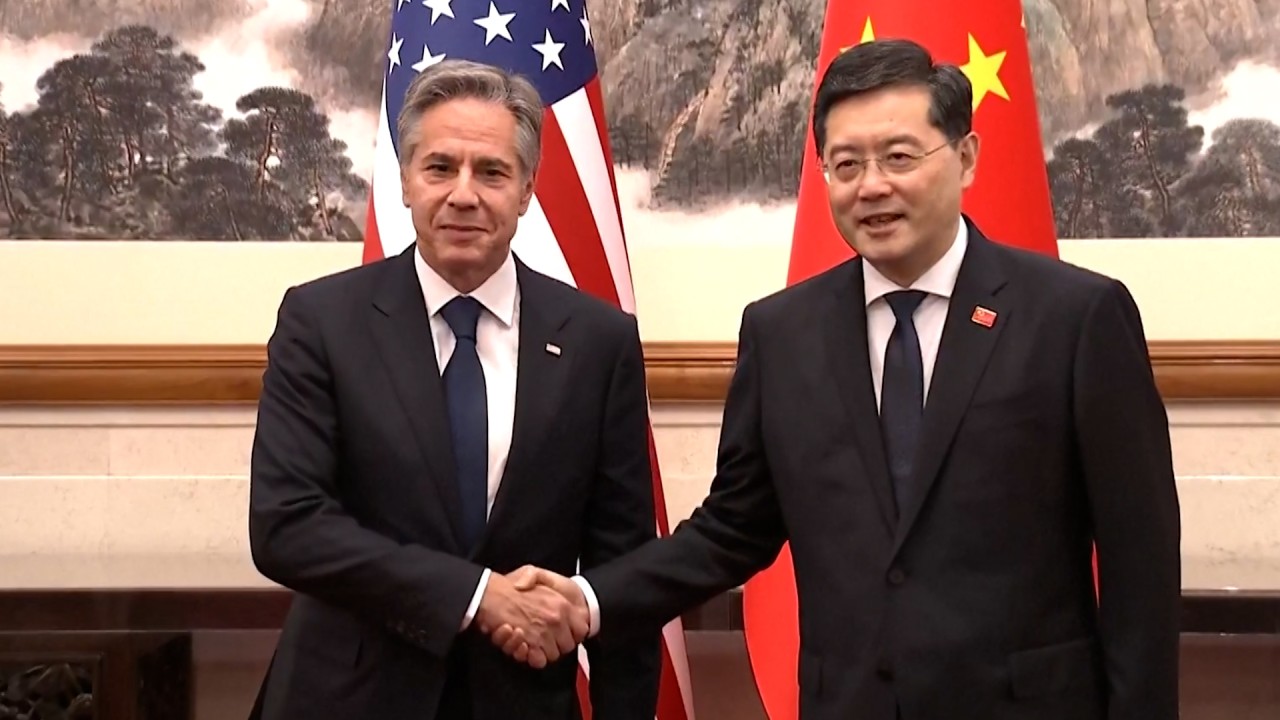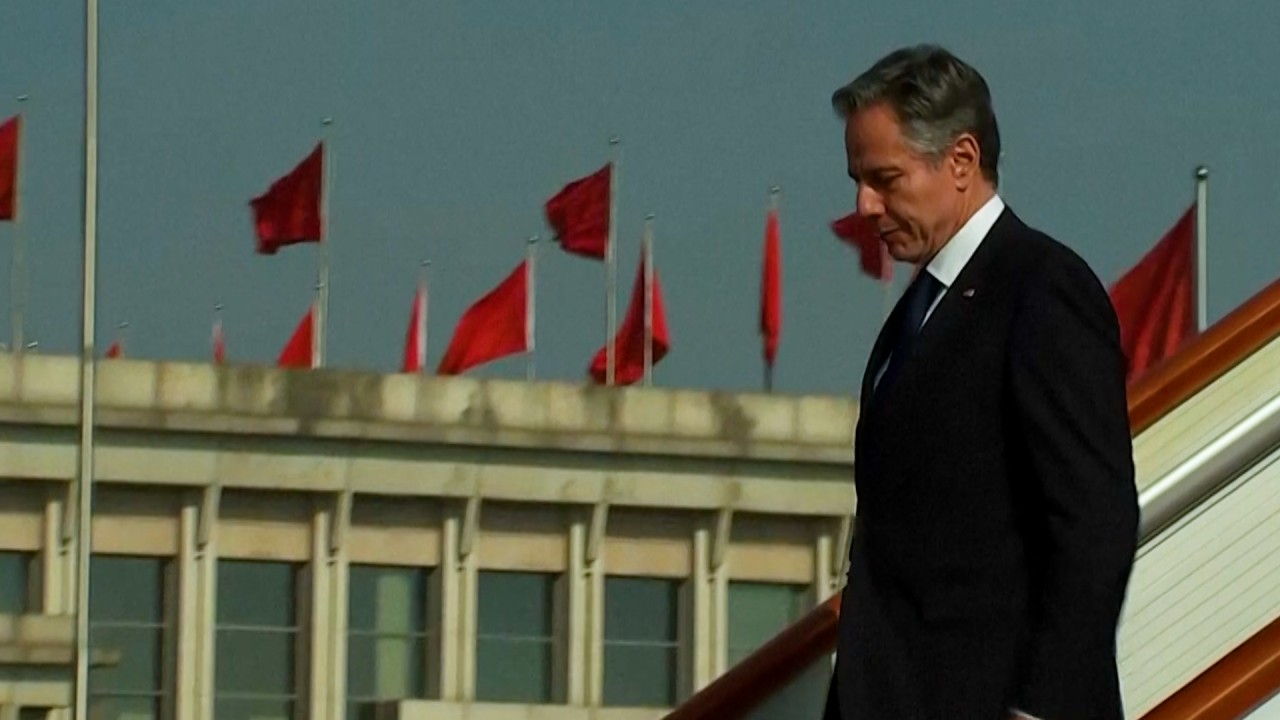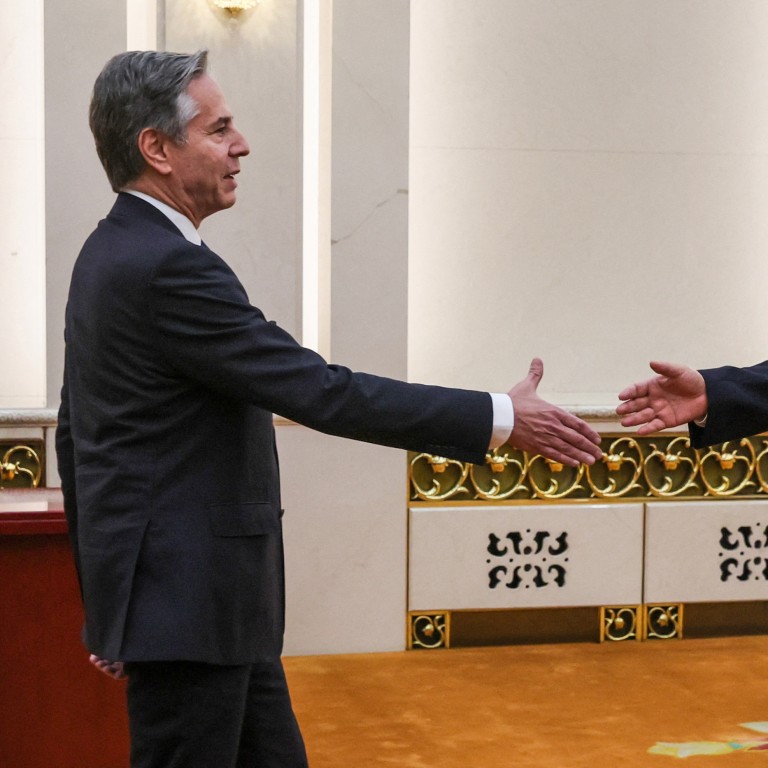
Xi Jinping and Antony Blinken cap China trip with vow to steady ties to ward off conflict
- The world needs a stable China-US relationship and rivalry cannot solve problems in the United States, Chinese president tells Blinken
- US secretary of state says visit was a positive step but there is still far to go to solve every problem between the two countries
Blinken and Qin call talks in Beijing ‘constructive’, agree to meet again
Xi told Blinken that rivalry between great powers could not solve problems in the United States or challenges facing the world, and the two powers should seek to respect each other’s interests.
“China respects the interests of the United States and will not challenge or replace the United States. Similarly, the United States must also respect China and not harm China’s legitimate rights and interests.
“Neither party can shape the other according to its own wishes, let alone deprive the other of its legitimate right to development.”
The Chinese leader said countries around the world had aired concerns over worsening US-China ties and they did not want to witness conflict or confrontation between the two major powers.
Fears have mounted that tensions between the world’s two biggest economies could come to military blows, with Taiwan seen as a major potential flashpoint. Calls for reengagement and communication have grown as the island counts down to a presidential election next year.
“My hope and expectation is we’ll have better communications, better engagement going forward,” Blinken said after meeting Xi.
“And I think we took a positive step in that direction over the last few days.”
He said Washington and Beijing recognised the need to stabilise the relationship though it was still far from solving every problem between the two countries.
Blinken said the trip met all of its objectives but it was still not enough.
“Progress is hard, it takes time and it’s not the product of one visit, one trip, one conversation,” he said.
“The meetings that we had I thought were very candid, very in-depth and in places constructive, and other places we have a lot more work to do.”
Blinken said that he would expect visits by other senior US officials to China “over the coming weeks”.
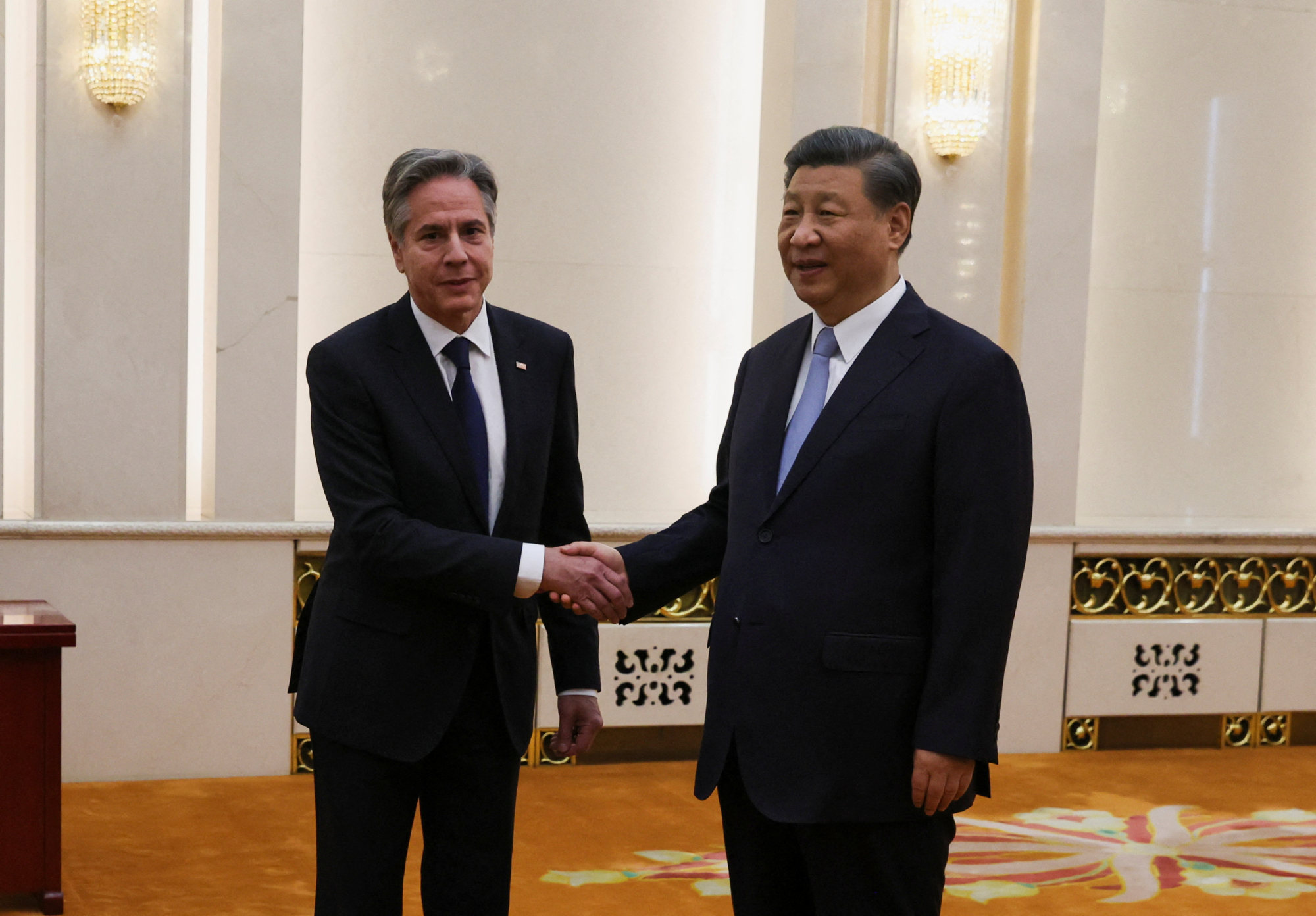
Both US Treasury Secretary Janet Yellen and Commerce Secretary Gina Raimondo have said they hope to travel to China this year.
State Department spokesman Matthew Miller said the two sides agreed to continue discussions on developing principles to guide the bilateral relationship and encouraged further progress, including through the joint working groups.
Both sides also underscored that they should work together to address shared transnational challenges, such as climate change, global macroeconomic stability, food security, public health, and counter-narcotics.
Xi also said there had been progress, describing Blinken’s trip as “very good” and saying agreements were reached on “some specific issues” in the secretary of state’s earlier meetings with China’s top diplomat, Wang Yi, and Foreign Minister Qin Gang.
In what appeared to be a conciliatory tone, Xi said China hoped for the return of “healthy and stable” relations with the US, and that he believed the two countries could “overcome all difficulties and find the right way to get along”.
Xi also urged Washington to adopt a “rational and pragmatic attitude” when dealing with Beijing and to put their positive statements into action and work towards improving US-China ties.
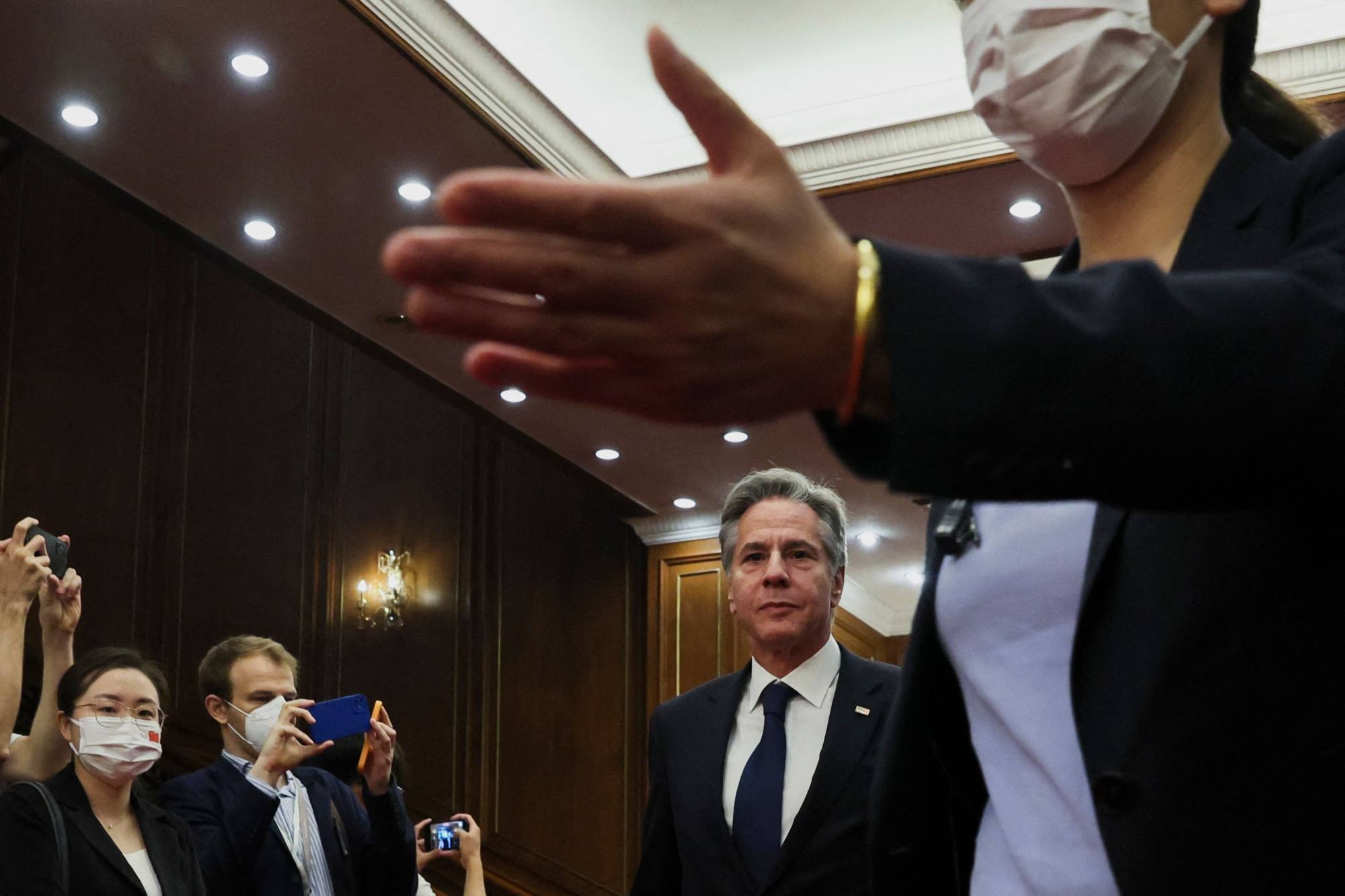
According to the US State Department, Blinken said he travelled to Beijing because US President Joe Biden believed that both the US and China had an “obligation and responsibility” to manage bilateral relations.
“The United States is committed to doing that. It’s in the interest of the United States, in the interests of China, and in the interest of the world,” he said.
According to the Chinese statement about the meeting, Blinken said Washington did not seek a new cold war and neither did it want to change China’s system or oppose Beijing by strengthening its alliances.
Daniel Russel, who was formerly the assistant secretary of state for East Asian and Pacific affairs at the US State Department, said that while the deliverables of Blinken’s trip were modest, both countries used it to help stabilise ties which have been “lurching toward dangerously intense confrontation”.
“Blinken’s visit was intended by both sides to lower the temperature, not to resolve fundamental disagreements,” he said.
‘Delicate timing’: why Blinken’s Saudi Arabia visit was a ‘message for China’
Blinken fully met the expectations for his visit, including meeting Xi, having extensive discussions with top Chinese officials, and unclogging the pipeline of official bilateral contacts, added Russel, who is vice president for international security and diplomacy at the Asia Society Policy Institute.
He also noted that the public statements released by both sides were largely positive, with both Blinken and Xi stressing that both countries have a responsibility to manage relations.
“Also important is the reaffirmation that the two sides are discussing the ‘principles’ that should guide the relationship,” he said. “While it seems improbable that Washington would agree to Chinese abstractions like ‘mutual respect and win-win cooperation’ or that Beijing would commit to abiding by concrete principles like ‘freedom of the seas’, the process of conducting this type of strategic dialogue is intrinsically valuable.”
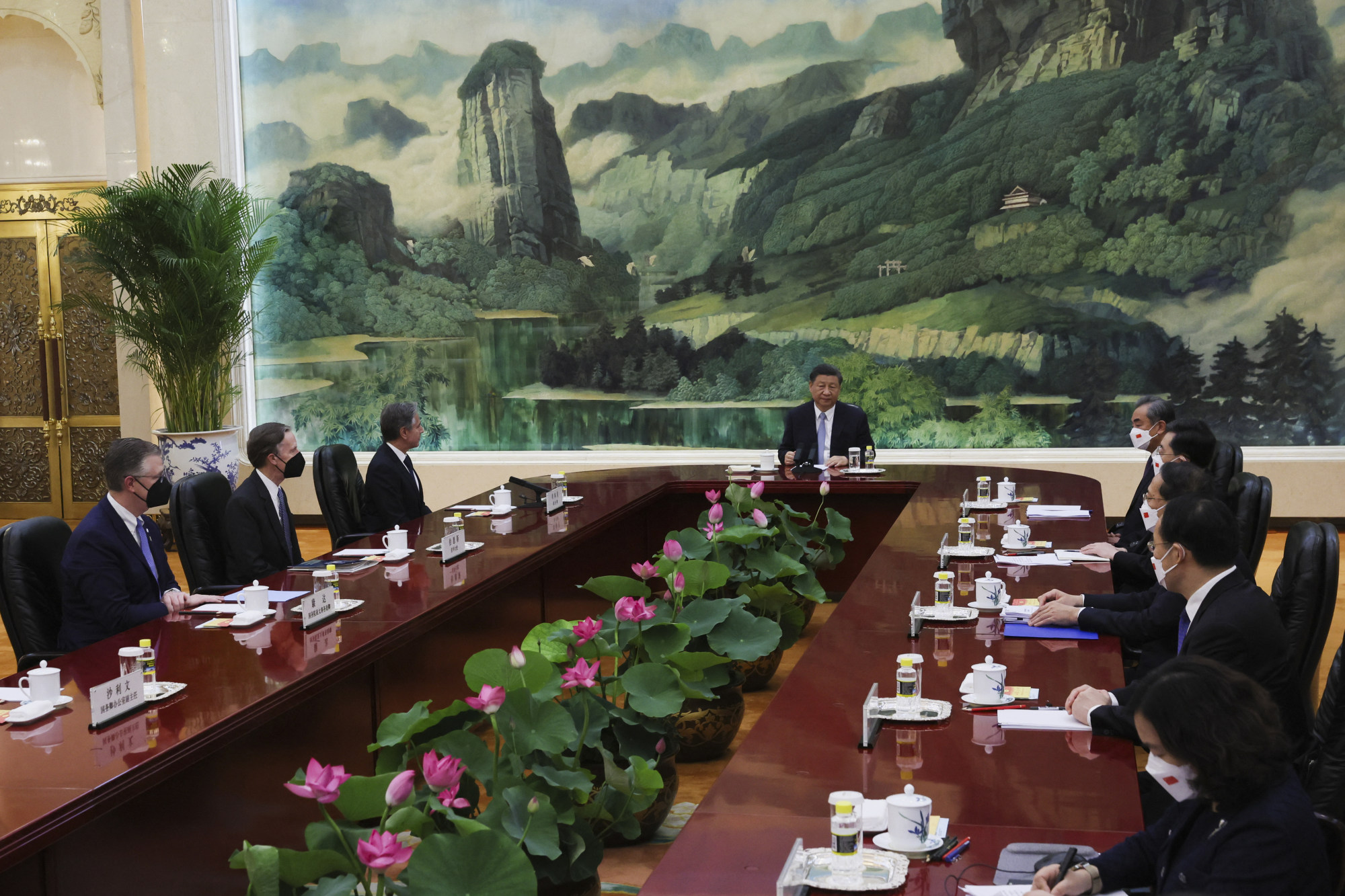
Zhu Feng, an international affairs professor specialising in US-China relations at Nanjing University said Blinken’s visit was “effective” and “positive”overall, which demonstrated a commitment from both sides to resume high-level dialogues.
Zhu said Xi’s meeting with Blinken showed that both sides are “satisfied” about the outcomes of his visit.
“President Xi’s meeting with him reflects the level of importance senior Chinese officials attached to his visit,” he added. “The dialogue with minister Qin Gang is at a working-level. [The meeting with Xi] shows that it’s a highly political conversation,” he said.
The meeting in Beijing was their first encounter in more than seven months – Blinken was present when Xi met Biden on the sidelines of the G20 summit in Bali in November.
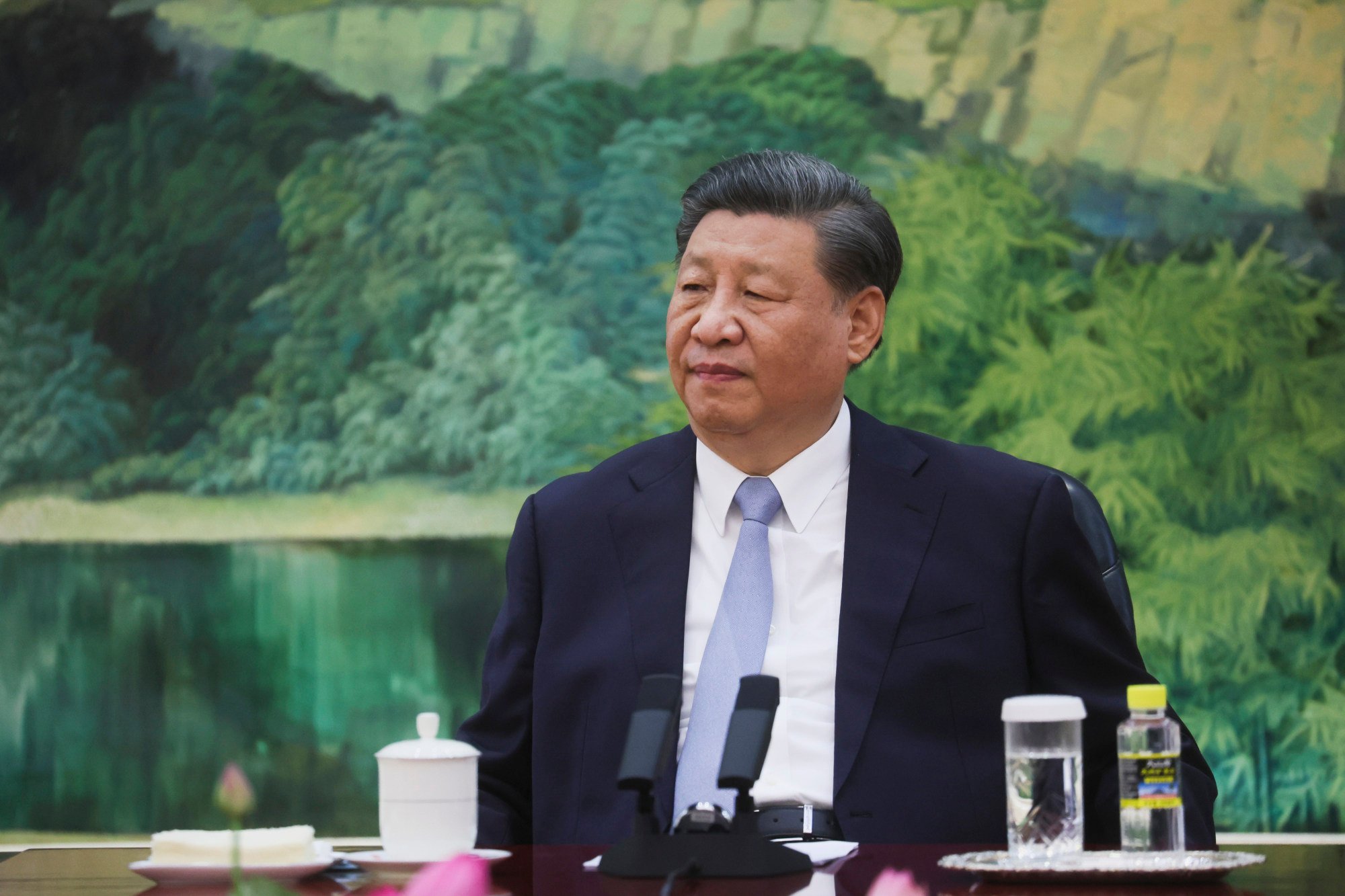
Earlier in the day, Wang Yi, urged the United States to “reflect deeply” and manage differences with Beijing, while attributing worsening ties to Washington’s “erroneous perception” of China.
According to CCTV, Wang told Blinken that his trip to Beijing came at a “critical juncture” in US-China ties and it was “necessary to make a choice between dialogue and confrontation, cooperation and conflict”.
“Sino-US relations have experienced ups and downs, and it is necessary for the US to reflect deeply and work with China to jointly manage differences and avoid strategic surprises,” he said.
“With an attitude of being responsible to the people, history and the world, we must reverse the downward spiral of Sino-US relations, push for a return to a healthy and stable track and work together to find a correct way for China and the United States to get along in the new era.”
‘Relatively restrained’: why Blinken’s China trip is sparking cautious hope
Wang also urged the US not to assume China was seeking dominance, and not to “misjudge” Beijing based on the trajectories of traditional Western powers.
“This is key as to whether the US policy towards China can truly return to objectivity and rationality,” he said.
Wang, who is Xi’s top foreign policy adviser, also called for the US to lift unilateral sanctions against China, stop the suppression of China’s technological development, and not interfere in Beijing’s internal affairs.
On Taiwan, Wang stressed that safeguarding its national unity would always be at the core of China’s core interests, and that there was “no room for compromise”.
According to the Chinese statement on the meeting, Blinken shared Washington’s views with Wang, adding that the US looked forward to strengthening communication with China and managing differences responsibly.
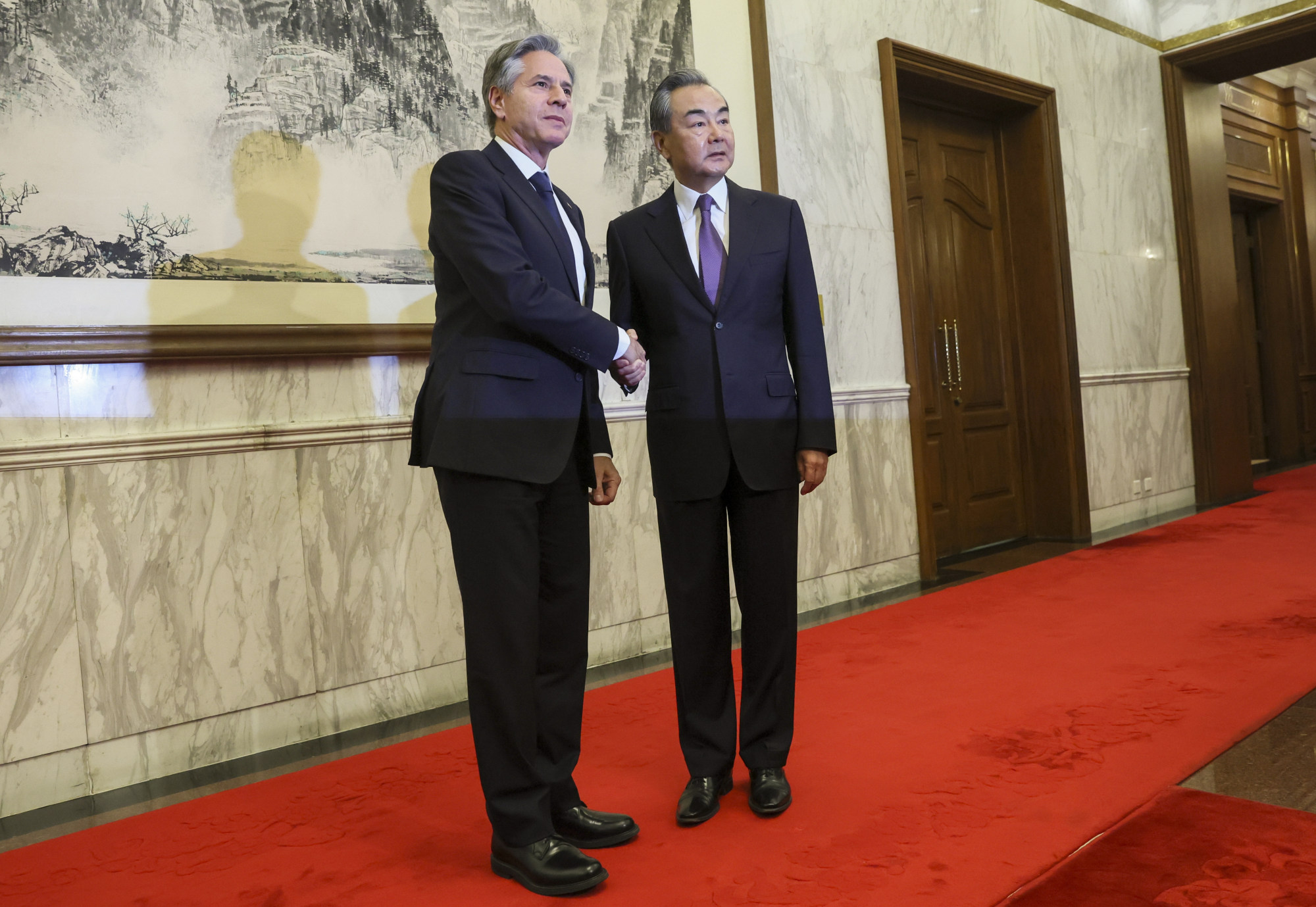
According to Miller, from the State Department, Blinken emphasised the importance of maintaining open lines of communication to reduce the risk of misperception and miscalculation.
Blinken raised a number of issues “of concern” and stressed that the US would “always stand up for the interests and values of the American people”.
Washington’s top envoy invited Qin to Washington to continue discussions, to which they agreed to schedule a visit at a “mutually suitable time”.
Qin told Blinken that ties between the two world powers were at their lowest but Beijing was committed to building a “stable, predictable and constructive” US-China relationship, CCTV reported.
Beijing views self-ruled Taiwan as a renegade province to be brought under mainland control, by force if necessary. Most countries, including the US, do not recognise Taiwan as an independent state. Washington, however, opposes any attempt to take the island by force.
Additional reporting by Zhuang Pinghui in Beijing



